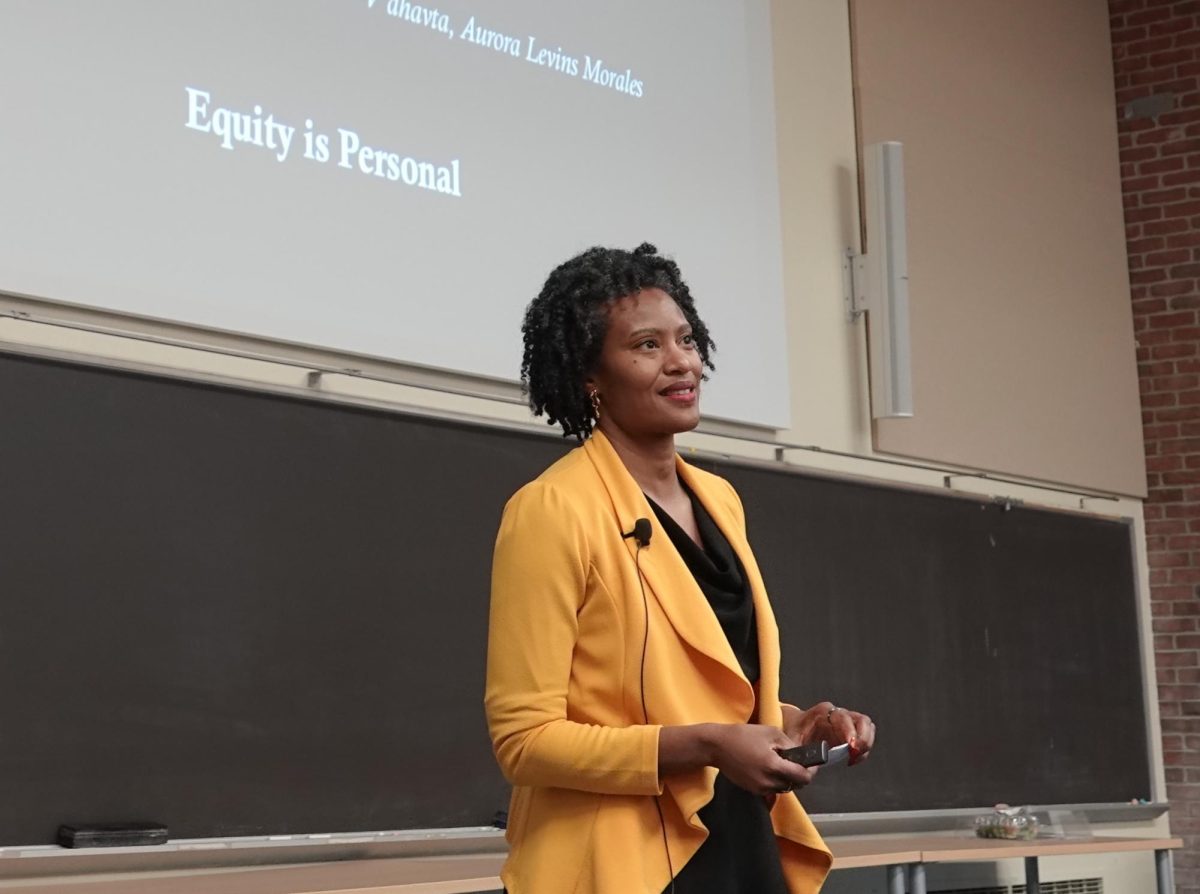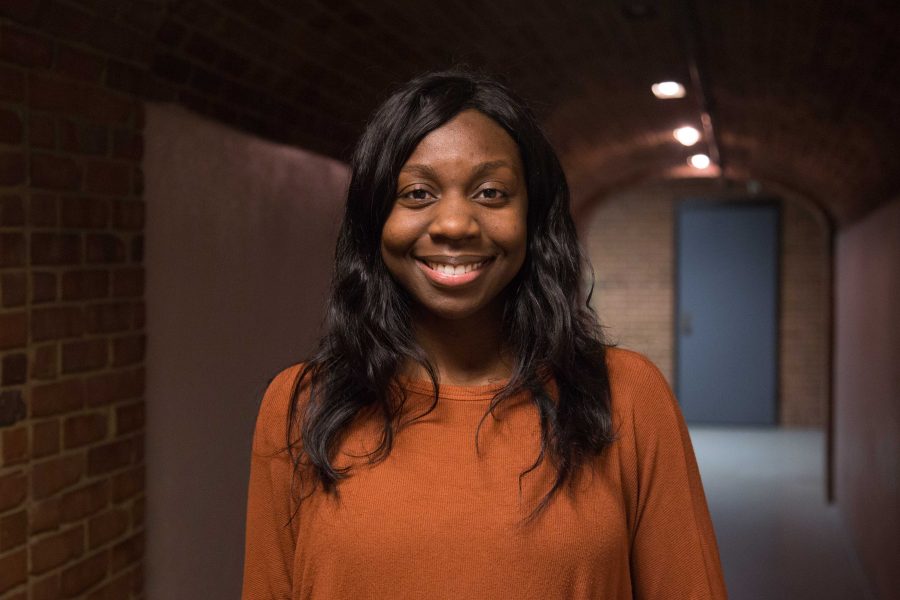Loyce Pace, assistant secretary for global affairs within the United States Department of Health and Human Services, delivered the 2024 Satcher Lecture on Feb. 28 at Light Hall. Introduced by Dr. Adriana Bialostozky, associate professor of pediatrics, and second-year M.P.H. candidate Stacey Riddick, Pace spoke on global health diplomacy and equity followed by an audience Q&A.
Pace supervises the HHS’ interaction with governments overseas as well as policymaking entities including the United Nations General Assembly and World Health Assembly. She has previously served on the Biden-Harris Transition COVID-19 Advisory Board and as president and executive director of the Global Health Council. Prior to this work, Pace collaborated with individuals and organizations to promote health equity and access throughout Africa and Asia.
Early inspiration
Pace underscored the significance of her mother’s influence on her passion for fighting for the rights of others. Born and raised in South Central Los Angeles, she reflected with gratitude on her access to health insurance and care due to her mother’s county government job.
“I have plenty of friends who used to use the school nurse as their primary care provider,” Pace said.
She further spoke of driving long distances to better neighborhoods that had higher quality facilities to practice running. Pace recalled hearing the sounds of a car backfire as she and her family drove to such facilities, acknowledging the “far too many” friends she lost to drive-by shootings.
Her access to care would suffice — however, the risks her and her teammates faced would not. She shared how these occurrences have inspired her to do more for people with similar stories.
“I remember doing outreach and programs in Los Angeles and then finding myself in Lagos, Nigeria and seeing how they’re doing the same programs and beauty salons and barber shops and churches and mosques,” Pace said.
She introduced the idea that, regarding health inequalities, the incentives are similar on local and global scales.
“We see each other and we’re doing some of the same things for some of the same reasons,” Pace said.
Communicating internationally
Pace suggested that the U.S. could learn from “interactions and exchanges” with other countries who have lower prevalence of certain diseases and behaviors.
“I talked a little about universal health coverage as it relates to ways we’re trying to provide that level of access to people who require it here,” Pace told The Hustler after the lecture. “Even the previous [Trump] administration was trying to control drug prices in ways Europe has managed to do but the U.S. hasn’t, so we’ve continued that work now and found more success.”
Pace noted how vital discussions are between different nations in using “vast knowledge” to address shared issues. She pointed to the statistics of the 700 million vaccines that the U.S. was able to distribute globally.
“We can talk about what worked and what didn’t about that process, because we have stories to tell,” Pace said.
She stated that the decisions the U.S. makes on foreign policy matter because they affect people and health equity.
“We’re talking about the situation in Gaza, and what we need to do to be helpful in that environment as well — just like we’re trying to be in Ukraine, just like we’re trying to be in Haiti,” Pace said.
Pace concluded by telling the audience to imagine a world that shares data and supplies rather than shutting down borders when disease strikes, emphasizing the united effort required to advance global health equity.
“I’ll say that it takes more than me to make that happen,” Pace said. “It truly takes all of us to be showing up in the ways that we can and telling the people around you, ‘I’m not able to do everything, but I’ll do everything that I can in this moment.’”
Weighing in on global conflict, advice for students
In an interview with The Hustler following her lecture, Pace discussed the challenge of addressing the health needs of civilians in Gaza while also ensuring the security of those deployed to provide care and resources.
“In particular in Gaza it’s been tough because there’s been such an acknowledgement that what led to the crisis in Gaza was also atrocious and horrific — an act of terrorism, and it’s also very hard to meet the needs of people in that place when it’s not very safe for humanitarian workers,” Pace said.
She believes that, despite these challenges, those in the health space have a responsibility to “continue to speak to what’s right,” urging all involved parties in the conflict to follow the international laws of war and “be mindful” of civilian protections.
“There’s tons of issues with these hostages I can’t even imagine they’re facing in terms of their mental health and healthcare needs. And thousands of people who live in Gaza who have now been internally displaced are going without food, water [and] shelter,” Pace said. “As health leaders, we should continue to speak to those things and help political or other leaders understand what they could do to at least help address that part of the problem.”
Pace also extended advice to undergraduates interested in public and global health, encouraging them to consider the level at which they want to get involved.
“Understanding the scale or scope of work you want to pursue is important,” Pace said. “I wanted to be a physician, and then I learned what it would mean to be a physician. It was helping a person at a time — which is all well and good, but my heart was drawn toward community coalitions and broader-based work.”
She urged students to remain curious and explore different facets of health care and equity work.
“I was really open to learning parts of the work in different ways, even going from community services to community organizing and advocacy to government,” Pace told The Hustler. “It’s taking different bites of the apple and recognizing that [you] can be fulfilled in many different ways.”
Sophomore Gloria Carter, who attended the lecture and plans to pursue medicine and public health, expressed appreciation for the opportunity to hear Pace speak.
“I was really excited to attend because I love learning about health from different perspectives and backgrounds,” Carter said. “I loved her use of poetry and written works that inspired her because it made them more inspiring to the audience.”






